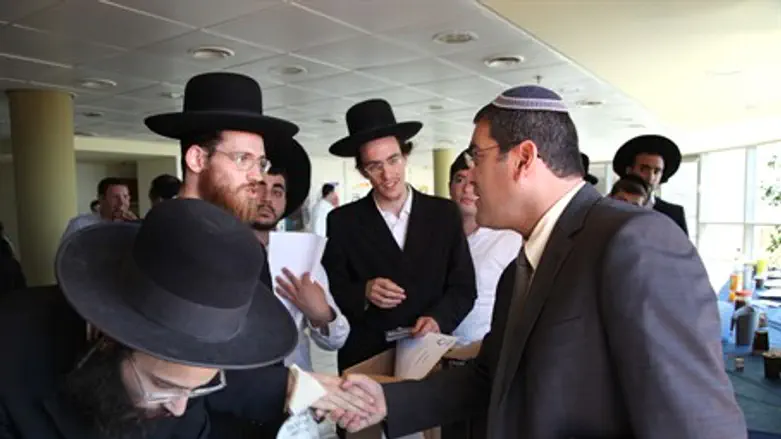
Hareidi religious Israelis who are interested in fulfilling their obligation to the state by performing National Service may not have that option beginning December 1, if the Knesset does not pass the “equal burden of service” law that legislates the parameters of service for Israelis in the IDF and National Service.
According to Sar-Shalom Jerbi, chairman of the National Service, failure to pass the law could lead to a new crisis with the hareidi religious community, as all 18-20-year-olds in that community will be subject to immediate and full IDF service, which many are expected to reject outright.
The new law, which the Knesset has been discussing for months, is meant to replace the Tal Law, which the High Court struck down last year. The law calls for all draft-age eligible Israelis to serve the state in one of several ways, including IDF service and National Service, an option many in the hareidi religious community are expected to avail themselves of.
However, that option will only be available if the Knesset passes the law authorizing National Service as a legitimate replacement for IDF service. If the law is not passed by December 1 – the day the Tal Law automatically expires – hareidi religious draftees between the ages of 18 and 24 will be automatically enrolled in the IDF. Draft orders will be sent out, and those who fail to show up at the registration centers could be subject to penalties, such as imprisonment.
In a letter, Jerbi appealed to MK Ayelet Shaked, chairperson of the Knesset Committee on Equitable Service, to push through passage of the legislation. In recent months, he said, the state has come to an understanding with many leaders of the hareidi community on the nature of service hareidi yeshiva students will be able to perform, but without the option of National Service, “I fear that these understandings, both in the nature of service and the number of volunteers, will be jeopardized.
“Young people who report to induction centers will request placement in National Service units, but will be denied the opportunity,” Jerbi said. “We are at a very sensitive period when it comes to relations with the hareidi religious community. This issue could cause great damage to the acceptance by the hareidi religious community of the new law on equitable service.”